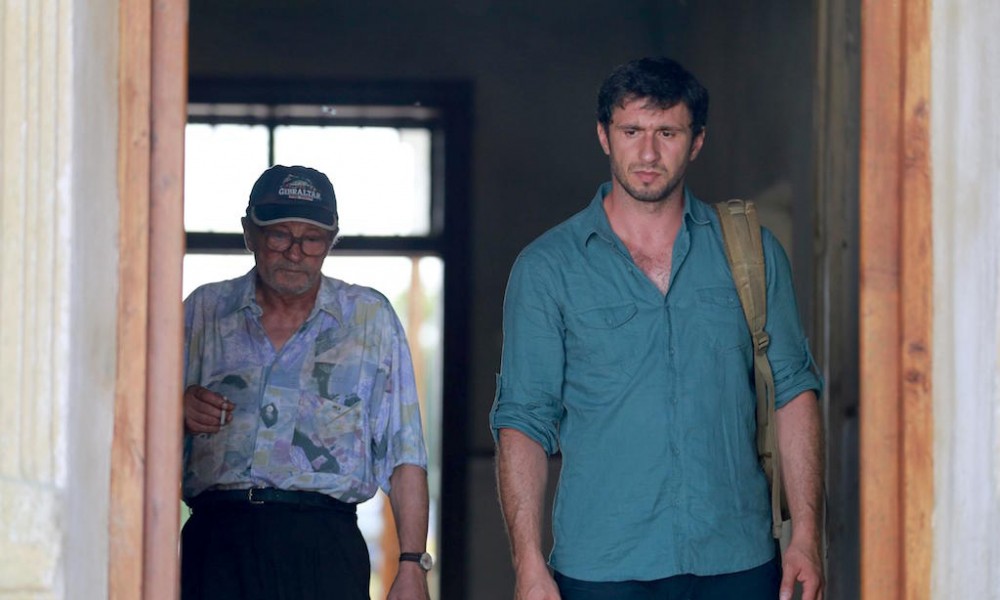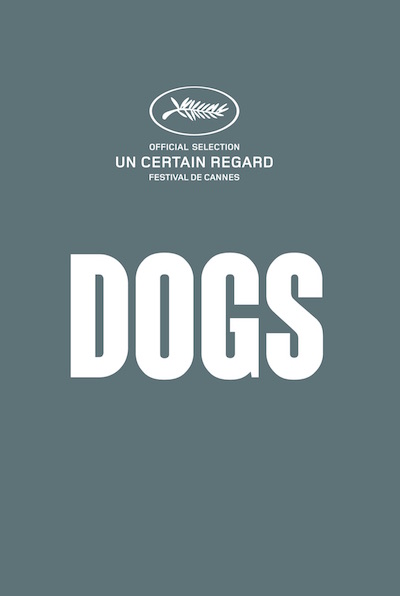Câini (Dogs)

Bleak, barren, desolate: Bogdan Mirica’s Câini (Dogs) is an unflinching portrayal of the expansive outback rarely glimpsed on the Romanian-Ukranian border. Austere and technically accomplished, the film offers no simple resolutions, evoking a primitive, almost Hobbesian state of nature where pleasantries are discarded in favour of fear and violence. If not quite actors in a war of all against all, the inhabitants of this strange land doggedly pursue personal agendas informed by embedded resentments and deceitful machinations.
Roman (Dragoş Bucur) returns to this land after the death of his gangster grandfather. He has become the rightful inheritor. Wanting to return to the city, Roman desires to sell the vast expanse as quickly as possible, while his girlfriend cannot wait and comes to stay with him. But the men who inhabit the land, led by the loathsome Samir (Vlad Ivanov, an actor who is omnipresent at Cannes this year), have a smuggling business to protect, a hangover from the quasi-rule of Roman’s grandfather. Meanwhile, old police chief Hogas (Gheorghe Visu) is riddled with lung cancer. His gradually weakening figure is spent exploring a mysteriously discovered mutilated foot, found in the brilliant opening sequence rising to the surface of a deep, acrid swamp. The unease does not desist among the small community, and a reckoning approaches.
There is a wonderful symmetry to the film’s images: trees, poles and fences frame the characters’ interactions in almost every scene. And much of the film’s dialogue takes place in twos: characters sit side by side, with each consuming one half of the frame. The camera remains fixed, capturing the pauses and nuances found in hushed, resigned conversations. Hogas’s inspection of the mutilated foot, where he slowly eases off the sock, is brilliantly depicted. It occurs in real time and face on, with the camera a still, silent onlooker. The general sense of thirst is also palpable – characters don’t sip or drink but guzzle and gulp. Moreover, the bleached, arid colour palette of the contested lands, filled with sickly barks of sickly dogs, felt reminiscent of the horrors of property and ownership found in JM Coetzee’s novel Disgrace. The story unravels slowly, which is no problem in itself, but it means that the tension flags during the exposition of several redundant subplots. The descent into violence is ingenious and shocking, however, and the strangeness of the film lingers on past the credits.
Joseph Owen
Câini does not have a UK release date yet.
Read more of our reviews and interviews from the festival here.
For further information about Cannes Film Festival 2016 visit here.
Watch a clip for Câini here:

























Facebook
Twitter
Instagram
YouTube
RSS